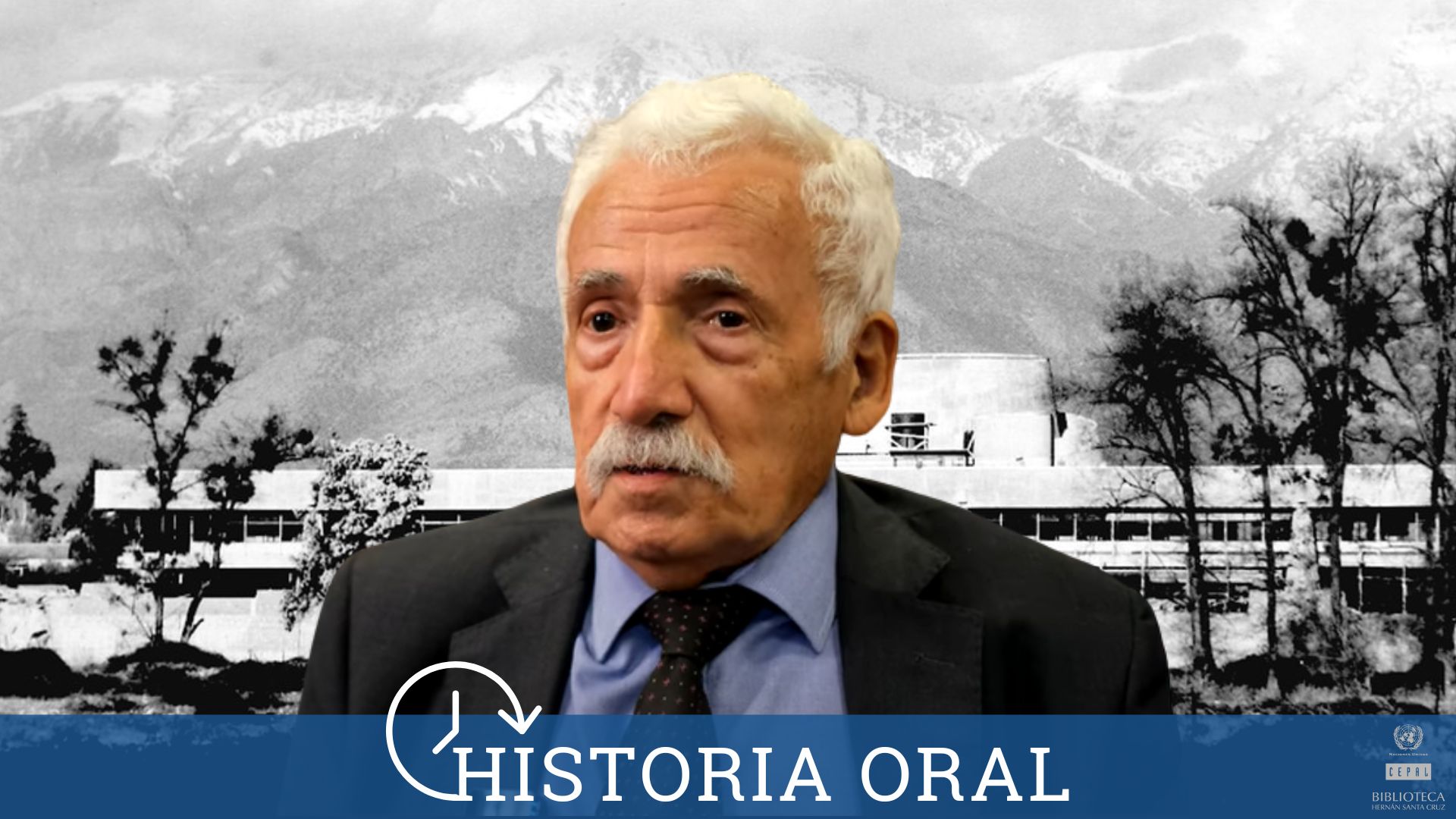Historia Oral | Jose Besa’s journey at the ECLAC Library
Topic(s)
In this Historia Oral interview, José Besa recalls his four decades at ECLAC—from library messenger to preserving Raúl Prebisch’s archives.

As part of the Historia Oral project of the Hernán Santa Cruz Library, we continue sharing the voices that have shaped ECLAC’s institutional memory. In this episode, we hear directly from José Besa, who joined ECLAC in 1952 and spent nearly four decades preserving and protecting ECLAC’s intellectual heritage, leading the library and its team.
From Messenger to Librarian
José Besa began his journey at ECLAC at just 18 years old, starting as a library assistant in Santiago. He recalls how those early days, organizing mail and caring for the Library’s collection, sparked a passion that would guide his career.
“When I first arrived at ECLAC, I worked as a messenger. Each morning, I would collect the mail and later spend hours in the Library, ordering and cleaning the collection. Step by step, I moved up: from assistant, to librarian, and eventually Head of the Library. It was not only a job—it was a vocation that grew with me over the years,” Besa shares in the video.
Preserving the Raúl Prebisch Archive
Looking back at his career, Besa recalls a task that remains especially meaningful to him.
“One of the most meaningful tasks of my career was safeguarding the Raúl Prebisch Archive. At the request of his family and researchers, I organized thousands of his documents—writings, speeches, and clippings—that today form an essential source for scholars worldwide. Protecting this legacy was both an honor and a responsibility.”
Raúl Prebisch was an Argentine economist, the first Executive Secretary of ECLAC and a leading thinker on Latin America’s economic development.
Creating a Book for the Institution
“In 1988, to mark ECLAC’s 40th anniversary, I compiled and edited the volume Antecedentes de la creación de la CEPAL. For me, this book was not just a compilation of documents—it was a way to ensure that our history could be studied and remembered, even during challenging times in Chile when international meetings were limited. The recognition it received remains one of the proudest moments of my career,” he recalls.
Besa’s work helped safeguard ECLAC’s institutional memory, providing scholars and policymakers with a crucial record of the organization’s early efforts to shape Latin America’s development.
Memories of Colleagues and Leaders
Reflecting on his time at ECLAC, Besa highlights people who shaped both his career and the institution itself:
“Over the years, I had the privilege of working with outstanding colleagues and leaders: Raúl Prebisch, Hernán Santa Cruz, Gert Rosenthal, Enrique Iglesias, and many others. Each encounter reminded me that ECLAC was more than an institution—it was a community of people committed to development and knowledge.”
Protecting ECLAC’s Legacy Through Difficult Times
His decades at ECLAC were not without challenges, as political and environmental crises tested both the institution and its staff.
“My time at ECLAC was also marked by challenges: political upheavals, natural disasters, and moments of uncertainty. I remember the days of the 1973 coup in Chile, when staff had to leave the building abruptly. And in 1982, when floods damaged parts of our premises, we worked tirelessly to protect documents from being lost. These moments showed me the resilience of our staff and the importance of safeguarding our archives,” Besa shares in the interview.
These experiences reveal not only the challenges ECLAC faced but also the dedication and resilience of the people who worked to protect its institutional memory.
A Message to Future Generations
“When I look back, I hesitate to give advice—because times are different. But I will say this: working at ECLAC is a privilege. Through my years here, I saw enthusiasm, commitment, and a sense of purpose that carried us through difficulties. I hope new generations will continue to value this institution and the knowledge it preserves,” Besa concludes.
👉 Watch the full interview here